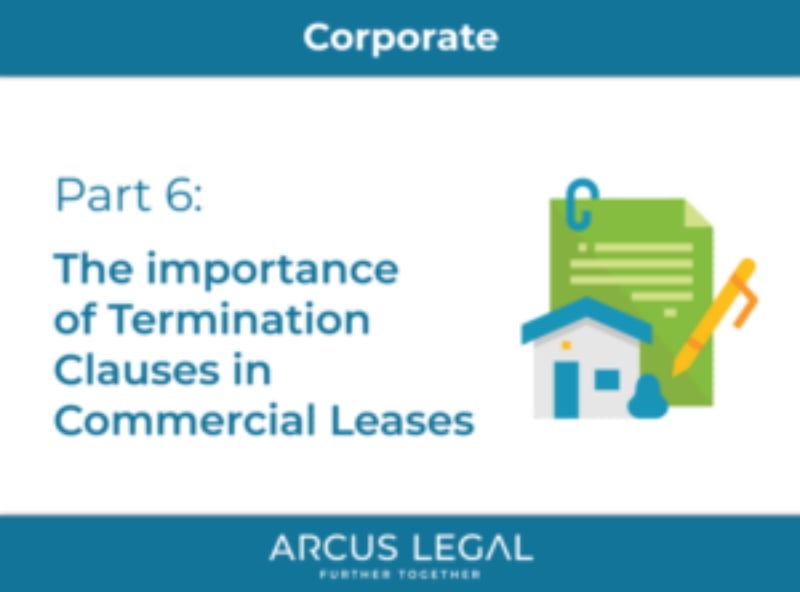Commercial leases play a crucial role in establishing the relationship between landlords and tenants. However, many tenants in Nova Scotia may not be aware of the potential ramifications of signing a lease agreement without a termination clause. This essay serves as a cautionary tale, highlighting the risks and liabilities commercial tenants may face if their lease agreement lacks a termination clause.
1. Understanding the Termination Clause:
A termination clause in a commercial lease provides tenants with the right to end the lease agreement prematurely, subject to specific conditions or penalties as outlined in the clause. Without a termination clause, tenants may find themselves bound to the lease for the entire term, regardless of their circumstances or changing business needs.
2. Limited Recourse for Early Termination:
In the absence of a termination clause, tenants may face limited recourse for terminating the lease before the agreed-upon term. The lease becomes a legally binding contract, and tenants may be held liable for all the rent due for the entire duration, even if they no longer require the space or encounter unforeseen financial challenges.
3. Lack of Flexibility:
Without a termination clause, tenants are deprived of the flexibility to adapt to changing business conditions. A lease agreement without an exit strategy can be particularly burdensome if a business faces unexpected downturns, relocation requirements, or shifts in industry dynamics that necessitate downsizing or expansion.
4. Financial Liabilities:
Tenants without a termination clause face the potential financial burden of paying the full rent for the remaining lease term, even if they are unable to utilize the premises. This liability can place an immense strain on a business, hindering its financial stability and growth prospects.
5. Legal Consequences:
Attempting to terminate a lease without a termination clause may expose tenants to legal consequences. Landlords may seek legal remedies to enforce the lease, including filing lawsuits to collect the outstanding rent for the entire term. Such legal battles can be costly, time-consuming, and detrimental to the tenant’s reputation and financial well-being.
6. Importance of Negotiation and Legal Advice:
When entering into a commercial lease, it is essential for tenants to thoroughly review the agreement, seek legal advice, and negotiate favorable terms, including a termination clause. Consulting with legal professionals who specialize in commercial leasing can help tenants understand their rights, negotiate for fair and reasonable termination provisions, and ensure their interests are protected.
7. Mitigating Risks and Ensuring Protection:
Tenants in Nova Scotia should be proactive in safeguarding their interests by diligently negotiating lease agreements that include termination clauses. These clauses should outline conditions, notice periods, and potential penalties for early termination. With a well-crafted termination clause, tenants gain the flexibility and protection necessary to navigate unforeseen circumstances and changing business needs.
Commercial tenants in Nova Scotia must be cautious when entering into lease agreements, giving careful consideration to the inclusion of termination clauses. A lease without a termination clause leaves tenants vulnerable to potential liabilities and financial strain, as they may be held accountable for the full rent due for the entire term. Seeking legal advice, conducting thorough negotiations, and advocating for termination clauses are vital steps to mitigate risks and protect the interests of commercial tenants. By understanding the implications of lease agreements and their termination provisions, tenants can make informed decisions that align with their business goals and circumstances.





